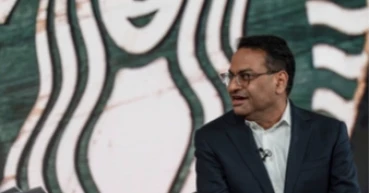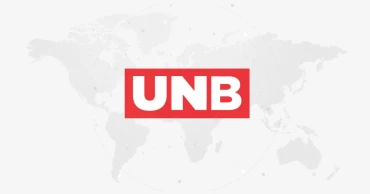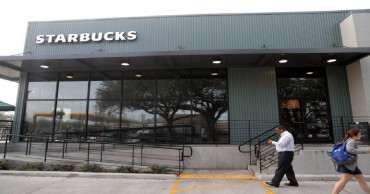Starbucks
Amazon and Starbucks workers are on strike. Trump might have something to do with it
Delivery drivers for Amazon and baristas at Starbucks staged strikes in multiple U.S. cities this past week, aiming to pressure the companies to recognize their unions or negotiate inaugural labor contracts.
The strikes, which began on Thursday and Friday, come during the holiday season—a critical period for economic activity—providing workers with greater leverage. Organized labor has seen notable victories this year, with major concessions won by unions representing Boeing workers, dockworkers, and Las Vegas hospitality employees. However, Amazon and Starbucks workers continue to face challenges in securing their first contracts.
Biden approves National Security Memo to assist Trump on key global issues
Amazon drivers and warehouse employees, many of whom have voted to unionize, remain unrecognized by the e-commerce giant. The Teamsters union, which represents many Amazon workers, announced strikes at seven delivery stations in cities including Los Angeles, New York, and Atlanta. Additional strikes are planned at a major New York warehouse, which voted to unionize in 2022.
The Teamsters are advocating for higher wages, better benefits, and improved safety measures, citing economic insecurity faced by employees despite Amazon’s valuation of $2.3 trillion. Amazon has countered these claims, highlighting its $22-per-hour base wage and recent pay increases for subcontracted drivers. The company disputes the union’s representation of its workers, arguing that delivery drivers are employed by contractors rather than Amazon directly.
The National Labor Relations Board (NLRB) has challenged Amazon’s stance, filing a complaint in September that classified drivers as joint employees of the company. The NLRB has also accused Amazon of failing to negotiate with the Teamsters over drivers at a California delivery hub and has criticized the company for refusing to bargain with unionized warehouse workers.
Trump brings chaos back to Washington by attempting to kill bipartisan budget deal with Musk's help
At Starbucks, contract negotiations have been ongoing but remain unresolved. Starbucks Workers United, representing employees at over 500 U.S. stores, claims the company has failed to honor its February pledge to finalize a labor agreement by year-end.
The union launched strikes in Chicago, Los Angeles, and Seattle, with actions spreading to Denver, Pittsburgh, and Columbus over the weekend. Labor leaders say dozens of stores are now affected, with strikes potentially escalating to hundreds by Christmas Eve.
Union representatives criticized Starbucks’ proposed contract, which includes no immediate wage increases for unionized workers and only a 1.5% raise in future years. Starbucks, meanwhile, has defended its pay and benefits package, claiming baristas working 20 hours a week earn up to $30 per hour in total compensation.
Trump taps immigration hard-liner Kari Lake as head of Voice of America
The strikes at Amazon and Starbucks reflect broader labor unrest that gained momentum during the COVID-19 pandemic, highlighting economic inequality and frontline worker challenges. While some organizing efforts, including campaigns at Apple and Trader Joe’s, have succeeded, securing contracts has proven difficult.
Experts suggest the urgency of these strikes is heightened by political developments. President-elect Donald Trump is expected to appoint a Republican-majority NLRB, which could make union efforts more challenging. Trump’s recent nomination of Rep. Lori Chavez-DeRemer, a Republican with union support, to lead the Department of Labor has sparked speculation about how his administration will approach labor issues.
As holiday season strikes escalate, the outcomes may shape the future of labor relations at two of America’s most prominent consumer brands.
1 year ago
Laxman Narasimhan becomes Starbucks' new CEO
Starbucks officially has a new CEO. The Seattle coffee giant said Monday that Laxman Narasimhan has assumed the role of CEO and joined the company’s board of directors. Narasimhan succeeds longtime Starbucks leader Howard Schultz, who came out of retirement last spring to serve as interim CEO while the company searched for a new chief executive. Schultz will remain on the company’s board.
Starbucks announced last Septembe that Narasimhan would become its new CEO. Narasimhan, 55, most recently served as CEO of Reckitt, a U.K.-based consumer health, hygiene and nutrition company.
Prior to that he was a longtime executive at Pepsico. Since he was named incoming CEO, Narasimhan has traveled to more than 30 stores, manufacturing plants and support centers around the world, the company said.
He also earned his barista certification. In a prepared statement, Narasimhan said he was humbled as he stepped into his new role. “The foundation Howard has laid – building from scratch an iconic global brand fueled by a lasting passion to uplift humanity – is truly remarkable, and I am honored to have the opportunity to build on this deep heritage,” Narasimhan said. Narasimhan is scheduled to lead Starbucks’ annual meeting on Thursday.
Read more: Starbucks to have 6,000 stores in China by 2022
In his year as interim CEO, Schultz has announced hundreds of millions in investments to improve worker pay and benefits and revamp Starbucks’ North American stores.
The company posted record sales in its most recent quarter, which ended Jan. 1. But Schultz also faced a growing unionization effort at its U.S. stores, which the company opposes. Schultz is scheduled to testify March 29 before a Senate committee examining the company’s labor record.
2 years ago
Real coffee, but a fake 'Starbucks' in piracy-ridden Iraq
Everything from the signboard outside down to the napkins bears the official emblem of the top international coffee chain. But in Baghdad, looks are deceiving: The “Starbucks” in the Iraqi capital is unlicensed.
Real Starbucks merchandise is imported from neighboring countries to stock the three cafes in the city, but all are operating illegally. Starbucks filed a lawsuit in an attempt to shut down the trademark violation, but the case was halted after the owner allegedly threatened lawyers hired by the coffee house.
Be careful, he told them — and boasted of ties to militias and powerful political figures, according to U.S. officials and Iraqi legal sources.
“I am a businessman,” Amin Makhsusi, the owner of the fake branches, said in a rare interview in September. He denied making the threats. “I had this ambition to open Starbucks in Iraq.”
After his requests to obtain a license from Starbucks' official agent in the Middle East were denied, “I decided to do it anyway, and bear the consequences.” In October, he said he sold the business; the cafes continued to operate.
Starbucks is “evaluating next steps,” a spokesman wrote Wednesday, in response to a request for comment by The Associated Press. “We have an obligation to protect our intellectual property from infringement to retain our exclusive rights to it.”
The Starbucks saga is just one example of what U.S. officials and companies believe is a growing problem. Iraq has emerged as a hub for trademark violation and piracy that cuts across sectors, from retail to broadcasting and pharmaceuticals. Regulation is weak, they say, while perpetrators of intellectual property violations can continue doing business largely because they enjoy cover by powerful groups.
Counterfeiting is compromising well-known brands, costing companies billions in lost revenue and even putting lives at risk, according to businesses affected by the violations and U.S. officials following their cases.
Qatari broadcaster beIN estimated it has lost $1.2 billion to piracy in the region, and said more than a third of all internet piracy of beIN channels originated from companies based in northern Iraq. The complaint was part of a a public submission this year to the U.S. Special 301 Report, which publicly lists countries that do not provide adequate IP rights.
Read more: 8 killed in attack by gunmen on an Iraqi village: Official
Iraq is seeking foreign investment away from its oil-based economy, and intellectual property will likely take center stage in negotiations with companies. Yet working to enforce laws and clamp down on the vast web of violations has historically been derailed by more urgent developments in the crisis-hit country or thwarted by well-connected business people.
“As Iraq endeavors to diversify its economy beyond the energy sector and attract foreign investment in knowledge-based sectors, it is critical that companies know their patents and intellectual property will be respected and protected by the government,” said Steve Lutes, vice president of Middle East Affairs at the U.S. Chamber of Commerce.
Makhsusi insists he tried the legal route but was denied a license from Starbucks' regional agent based in Kuwait. He also said he attempted to reach Starbucks through contacts in the United States, but that these were also unsuccessful.
He depicts his decision to open a branch anyway as a triumph over adversity.
Cups, stir sticks and other Starbucks merchandise are obtained in Turkey and Europe, using his contacts, he said. “The coffee, everything is authentic Starbucks,” Makhususi added.
Makhsusi said he “had a session” with a lawyer in Baghdad to come to an understanding with the coffee company, “but so far we have not reached a solution.”
The law firm recounts a different version of events.
Confidentiality agreements prevent the firm from divulging details of the case to third parties, but the AP spoke to three Iraqi legal sources close to the case. They spoke on condition of anonymity in order to provide details. They also asked the name of the firm not be mentioned for security reasons.
They said that in early 2020, the firm was hired by Starbucks and sent a cease-and-desist notice to Makhsusi. They said that the businessman then told one of the lawyers on the case that he ought to be careful, warning that he had backing from a prominent Iranian-backed armed group and support from Iraqi political parties.
“They decided it was too risky, and they stopped the case,” the Iraqi legal source said. Makhsusi denied that he threatened Starbucks' lawyers.
Read more: Heavy gunfire rocks Iraq's Green Zone amid violent protests
Makhsusi said doing business in Iraq requires good relations with armed groups, the bulk of whom are part of the official state security apparatus.
“I have friendly relations with everyone in Iraq, including the armed factions,” he said. “I am a working man, I need these relationships to avoid problems, especially given that the situation in Iraq is not stable for business.”
He did not name particular armed groups he was in contact with. The AP contacted two groups known to have business dealings in the areas where the cafes are located, and both said they had not worked with Makhsusi.
Counterfeiters and pirates have stepped up activity in Iraq in the past five years, particularly as Gulf countries have responded to U.S. pressure and become more stringent regulators, said a U.S. official in the State Department, speaking on condition of anonymity because he was not authorized to talk about the trends.
The broadcaster beIN has sent cease-and-desist letters to Earthlink, Iraq’s largest internet service provider, which offers subscribers with a free streaming service, Shabakaty, composed almost entirely of pirated content, beIN has said. Iraq’s Communications Ministry, which partners with Earthlink, did not respond to a request for comment.
“It’s unheard of and completely outrageous,” said Cameron Andrews, director of beIN’s anti-piracy department. “It’s a huge market, so it’s a great deal of commercial loss.”
But the larger issue for beIN is the piracy that originates inside Iraq and bleeds into the rest of the region and the world, he said. After being copied by these companies, beIN’s channels are re-streamed on pirate IPTV services, and become accessible all over the region, according to beIN. The company’s investigation found that some Iraqi operators even distribute pirated content in the U.S.
At least two U.S. pharmaceutical companies have approached the U.S. Chamber of Commerce with complaints that their trademark was being used to sell counterfeit life-saving medication by Iraqi companies.
“I worry if regulatory lapses or infringements in IP protection are allowed, then U.S. companies will be deterred from doing business in Iraq and quality of care could be dangerously jeopardized for Iraqi patients,” said Lutes.
The companies did not accept to be named in this report or detail the types of medications.
Successive Iraqi governments promised to fight graft since the 2003 U.S.-led invasion reset Iraq’s political order, but none has taken serious steps to dismantle the vast internal machinery that enables state-sanctioned corruption.
Intellectual property has also historically been a low priority for Iraq. Limited bilateral talks with the U.S. over the issue have been on and off for the past five years.
The challenge is to find a “clear leader in the Iraqi government that is interested in IP issues as a way to attract foreign investment,” said a U.S. State Department official. “Until that person exists, it is difficult for us to engage.”
3 years ago
Stars Coffee, anyone? Starbucks successor opening in Russia
People in Moscow who were disappointed when Starbucks closed its coffee shops after Russia sent troops into Ukraine may now feel a caffeine jolt of hope: a nearly identical operation is opening in the capital.
The name’s almost the same: Stars Coffee. The logo could be the separated-at-birth twin of the Starbucks mermaid, with flowing hair, a small enigmatic smile and a star atop her head — though instead of a Starbucks crown she wears a Russian headdress called a kokoshnik.
The menu, judging by the company app introduced a day before the store’s formal opening Friday, would look familiar to any Starbucks customer.
Seattle-based Starbucks was one of the most visible of the wave of foreign companies that pulled out of Russia or suspended their operations in response to Russia’s military operation in Ukraine. Others include McDonald’s, IKEA and fast-fashion giant H&M.
The departure of these companies was a psychological blow to Russians who had become used to the comforts of Western-style consumer culture. But Russian entrepreneurs saw opportunity in suddenly unoccupied stores.
Read Coffeemaker buying guide with prices in Bangladesh
Former McDonald’s outlets are reopening and attracting sizable crowds under the name Vkusno — i Tochka. Though the name doesn’t roll off the tongue easily and is a little awkward to translate (roughly: It’s Tasty — Period), the menu is a testament to imitation being the most sincere form of flattery.
Yunus Yusupov, a popular rap artist who uses the stage name Timati, and restaurateur Anton Pinsky partnered to buy the Starbucks assets and took the imitation strategy a step further by giving the operation an English-language name.
At a news conference Thursday, they vowed to reopen all the former Starbucks under their new identity and even expand the business. The U.S. company had built its Russian operation to about 130 stores since entering the country in 2007.
While the close resemblance of the new operations to their predecessors could be seen as riding someone else’s inspiration and effort, the Starbucks and McDonald’s successors also fit a national-pride concept. Since Russia was walloped by sanctions and foreign pullouts, officials frequently assert that Russia will overcome by relying on its own resources and energies.
“Now the economic situation is difficult, but this is a time of opportunity,” Oleg Eskindarov, president of the holding company that partnered in the Starbucks deal, told the state news agency Tass. “For the past four months, we have been very actively looking at exiting companies following the example of Starbucks. There are several more similar examples, but we cannot talk about them yet.”
3 years ago
Well-known brands close NYC branches in record numbers in 2020
New York City has seen almost one in seven nationally recognized chain-store branches close their doors in 2020 as the COVID-19 pandemic ravaged the country and sent consumers scurrying for cover, according to a latest industry report.
5 years ago
Starbucks to have 6,000 stores in China by 2022
Starbucks has announced it would invest approximately 130 million U.S. dollars in China, aiming to have 6,000 stores in the country by 2022.
5 years ago
Starbucks' results top estimates but coronavirus slows sales
It was a happy holiday at Starbucks, but the company's sales momentum could start to slow due to the coronavirus outbreak in China.
6 years ago
Truck slams into Illinois Starbucks; 3 taken to hospital
A pickup truck slammed into an Illinois Starbucks on Thursday, injuring several people and causing massive damage to the coffee shop, police said.
6 years ago




.jpg)
.jpg)




